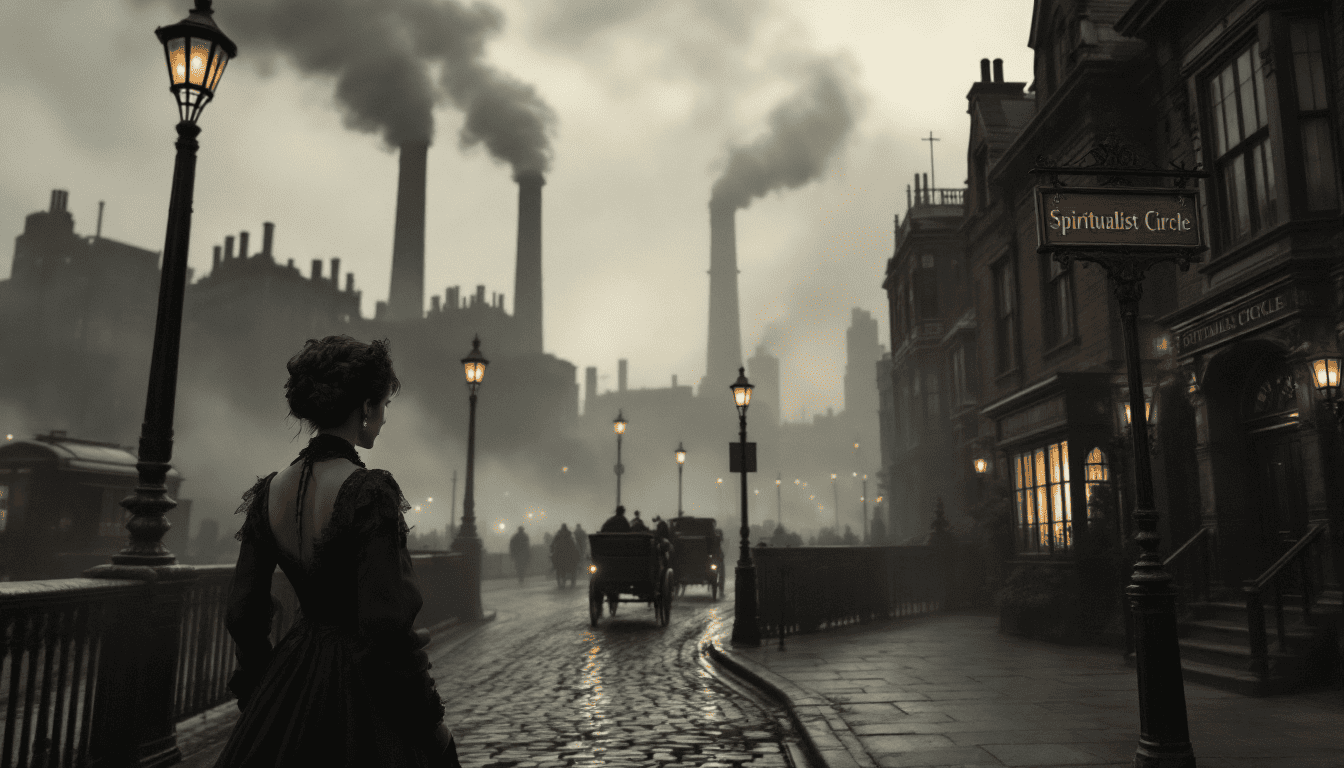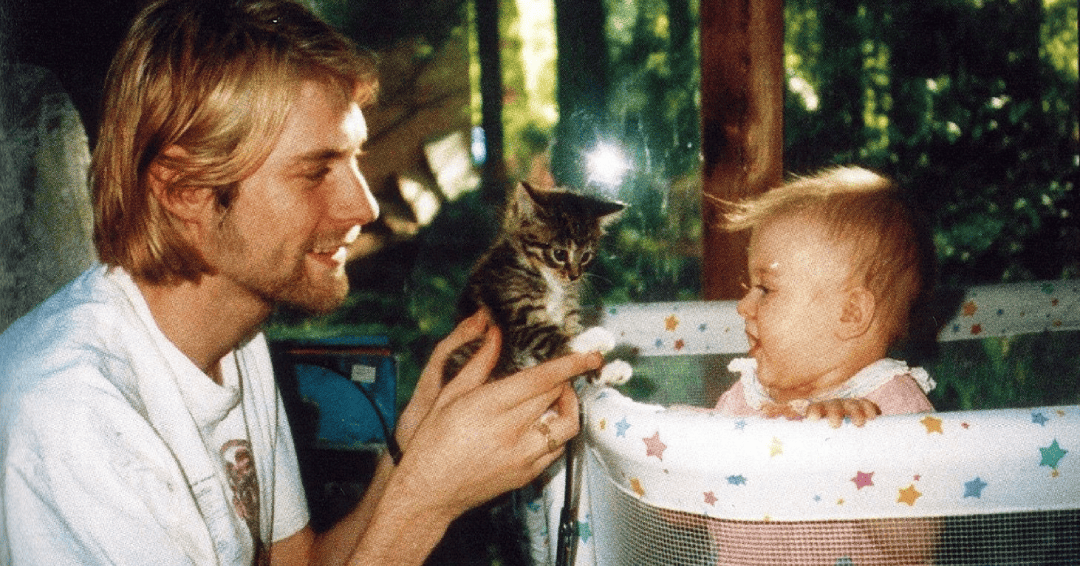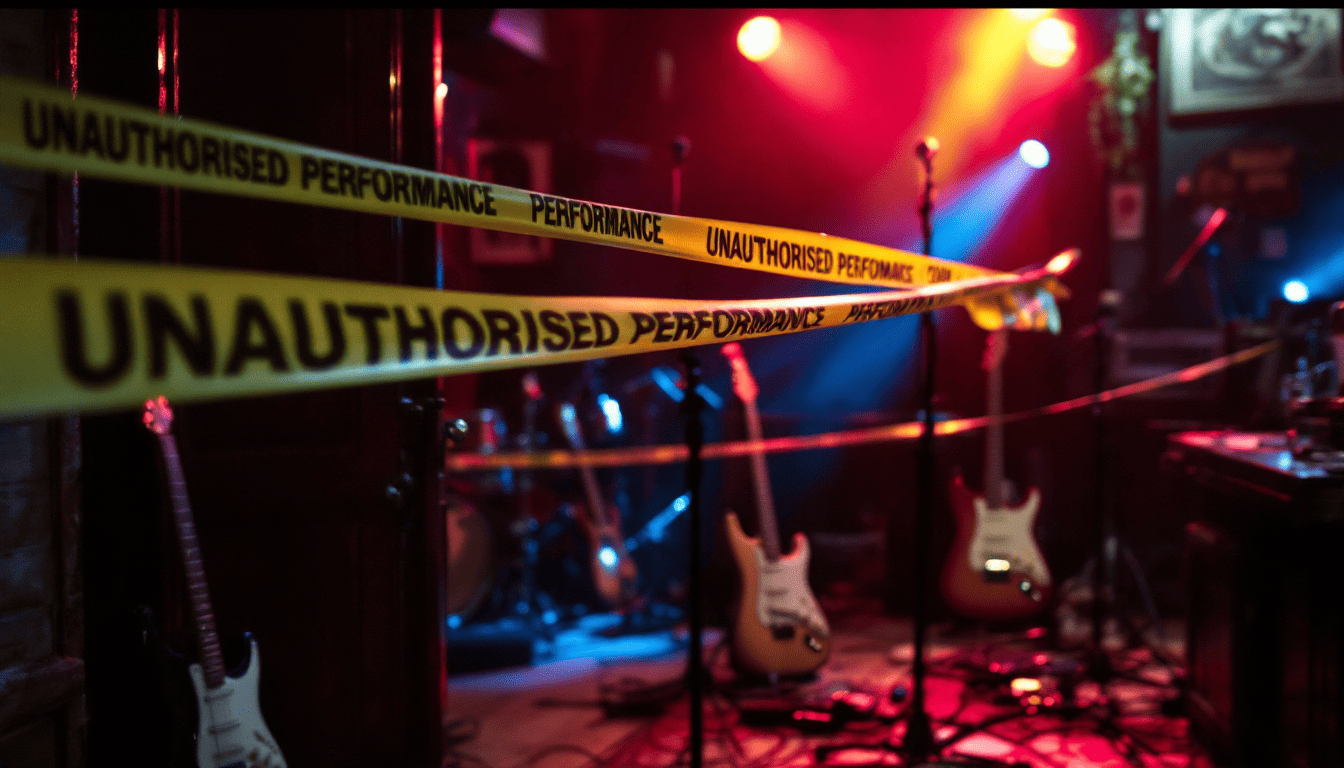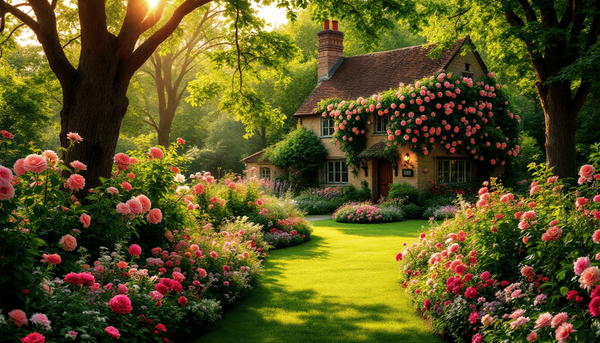Victorian England And Its Obsession With The Occult
Victorian drawing rooms debated Darwin and hosted séances. Britain's industrial age was its occult age because science itself made the invisible real. If electricity existed unseen, why not spirits? Today, we live in the same world with UFO sightings, hidden forces, and AI superintelligence.

The Victorian drawing room, gaslit and heavy with velvet, held strange contradictions. In one corner, guests debated Darwin's latest revelations about the origins of man. In another, a circle of gentlemen and ladies sat in darkness, hands joined, waiting for the table to rap out messages from the dead.
Far from being an age of pure rationality, Victorian Britain became increasingly enchanted by the supernatural—precisely as it transformed into the world's first industrial superpower. The factories belched smoke, the railways carved through ancient countryside, and yet the séance table trembled in Mayfair townhouses. How did the century of steam engines and telegraphs become equally the century of ghost-hunters and mystics?
The Hunger for the Unseen
Something profound shifted when millions left their villages for the grime and anonymity of Manchester, Birmingham, and London. Traditional religious certainties—the village church, the known vicar, the cycle of rural life—dissolved into factory smoke. God seemed more distant in a world of coal dust and crowded tenements.
Yet paradoxically, science itself opened doors to invisible realms. Electricity crackled through wires with mysterious force. Magnetism moved compass needles without touch. By the 1890s, X-rays would reveal the hidden skeleton beneath living flesh. If invisible forces governed the natural world, might invisible beings populate a supernatural one?
And then there was grief. Victorian families knew death intimately. Child mortality rates meant most mothers buried at least one son or daughter. Tuberculosis, cholera, and childbirth claimed the young and healthy without warning. The need to believe these beloved dead might still exist somewhere, might even speak, became overwhelming.
Spirits in the Parlour
Spiritualism swept across Britain in the 1850s like a fashionable contagion from America. Suddenly, respectable matrons hosted séances alongside their tea parties. Mediums, mostly women, interestingly, in an age when female authority was rare, commanded darkened rooms where spirits allegedly rapped, spoke, and materialised. Tables tilted. Tambourines floated. Ghostly hands touched trembling believers.
Some mediums became celebrities. D.D. Home levitated before witnesses (or so they swore). Florence Cook produced the spirit "Katie King" in full ectoplasmic form. Sceptics attended too: conjurors and mentalist magicians who aimed to expose the tricks, or sometimes, to acknowledge mysteries beyond their art.
The séance became a peculiar intersection of domestic space and cosmic drama. While men built empires abroad and railways at home, women often presided over these encounters with the infinite: channelling dead children, lost husbands, ancient wisdom. The boundaries between this world and the next grew thrillingly thin.
Secret Wisdom, Secret Societies
Victorian occultism couldn't content itself with spirits alone. It craved systems, hierarchies, ancient knowledge. Secret societies multiplied, blending mysticism, philosophy, and elaborate ritual.
The Hermetic Order of the Golden Dawn emerged in 1888, claiming descent from medieval Rosicrucians. Its members studied Kabbalah, tarot, astrology, and ceremonial magic. They included the poet W.B. Yeats, who sought supernatural inspiration for his verse, and eventually the notorious Aleister Crowley, who would push occultism toward its darkest edges. The Golden Dawn promised initiation into cosmic secrets through grades and degrees, transforming seekers into adepts through careful ritual.
Helena Blavatsky's Theosophical Society offered something different: Eastern mysticism for Western appetites. Blavatsky, a Russian émigré with a theatrical flair for the dramatic, claimed contact with Tibetan masters and taught about karma, reincarnation, and hidden spiritual evolution. For Victorians uncomfortable with Christian doctrine but hungry for transcendence, Theosophy provided exotic alternatives.
Meanwhile, Freemasonry flourished, and Rosicrucian orders revived medieval mysteries. These weren't fringe movements. Respectable men—doctors, lawyers, clergy—donned ceremonial robes and performed elaborate initiations, seeking moral improvement through esoteric wisdom.
In Scotland, stranger currents flowed. Rural areas preserved old folk practices barely Christianised. Seasonal rituals, herbalism, and second sight persisted. Some urban seekers, hungry for "authentic" spirituality, romanticised these traditions, beginning threads leading eventually to modern Wicca.
Satanism, too, gained Gothic allure, though more in imagination than practice. The figure of the Devil became less a theological terror and more a symbol of rebellion, forbidden knowledge, even liberation from Victorian propriety.
Curiously, vegetarianism and veganism emerged partly from these spiritual movements. Theosophists preached compassion toward all beings. Occultists saw diet as spiritual discipline. The connection between mystical seeking and ethical eating (unusual for the beef-loving Victorian era) reveals how thoroughly alternative spirituality reimagined daily life.
When Scientists Chased Ghosts
Most remarkably, prominent scientists joined the hunt for spirits. Sir William Crookes, who discovered thallium and pioneered cathode ray tubes, investigated mediums with scientific rigour. He emerged convinced some phenomena were genuine. Alfred Russel Wallace, co-discoverer of natural selection alongside Darwin, became a committed spiritualist, believing evolution itself was guided by spiritual forces.
These weren't gullible fools. They were brilliant minds who wondered whether spiritualism might reveal unknown natural laws. If electricity had been discovered only recently, might other invisible forces await discovery? Could the soul be weighed, measured, photographed?
The Society for Psychical Research, founded in 1882, attempted systematic investigation of telepathy, hauntings, and survival after death. Its membership included philosophers, scientists, and prime ministers. For a generation, "psychical research" seemed a legitimate frontier of knowledge.
Shadows in Victorian Literature
The occult obsession seeped into Victorian fiction like fog through London streets. Bram Stoker's Dracula (1897) married modern technology—telegraphs, typewriters, phonographs—with ancient supernatural evil. The vampire embodied Victorian anxieties about contamination, foreignness, and predatory sexuality.
Oscar Wilde's The Picture of Dorian Gray (1890) explored bargains with dark forces for eternal youth, suggesting corruption beneath respectable surfaces. Robert Louis Stevenson's Dr Jekyll and Mr Hyde (1886) externalised the divided self, the hidden beast within civilised man.
These weren't escapist fantasies. They were the Victorian subconscious made visible—all the desires, terrors, and transgressions polite society couldn't acknowledge by daylight.
The Paradox Remains
Why did rationalism and mysticism flourish together? Perhaps because they shared common ground: both rejected traditional religious authority. Science undermined literal biblical truth. Occultism offered direct spiritual experience without clerical mediation.
Victorian England wanted desperately to be modern: progressive, rational, scientific. Yet it couldn't bear to be only modern. The industrial world felt soulless, mechanistic, empty. If science disenchanted the cosmos, perhaps magic could re-enchant it.
The Victorians, it turns out, were less hypocritical than profoundly conflicted. They lived in the tension between faith and reason, tradition and progress, the visible and invisible. They built railways to the future while holding séances with the past.
This legacy endures. Modern paranormal investigation, New Age spirituality, and contemporary occultism all trace roots to Victorian experiments. The questions Victorians asked—Can consciousness survive death? Are there realities beyond the material?—remain unanswered.
Perhaps the real mystery isn't why the Victorians turned to occultism during their age of science. It's why we're surprised they did. Humanity has always needed enchantment. Even, especially, when reason tells us enchantment is impossible.




